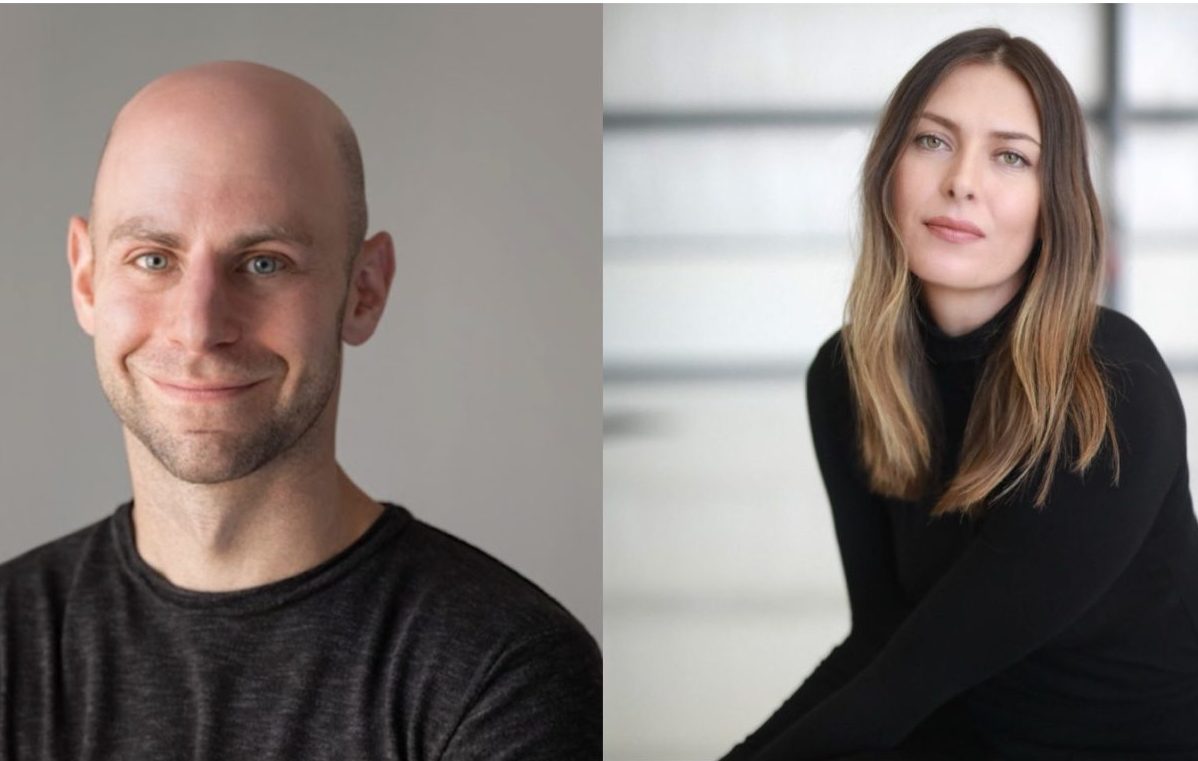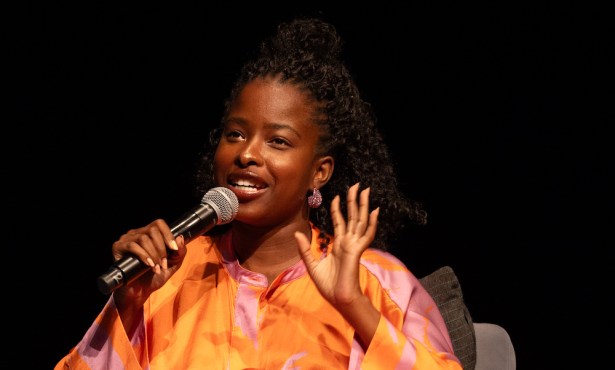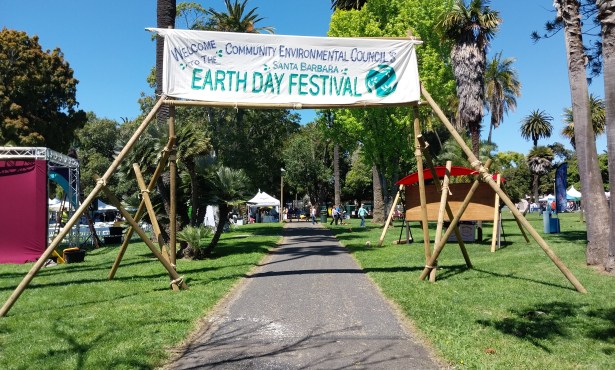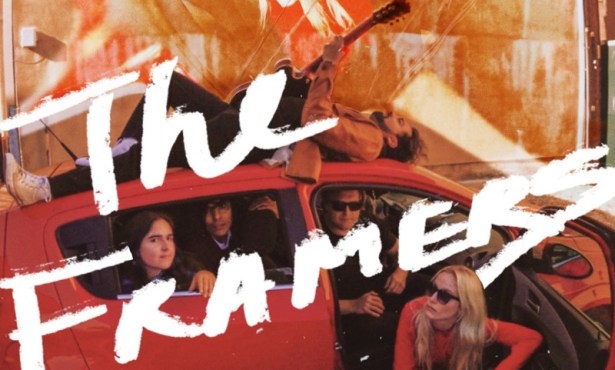Adam Grant and Maria Sharapova Talk About Motivation and Criticism at the Arlington
Santa Barbara Appearance Is Beginning of Book Tour for Grant’s New Title ‘Hidden Potential: The Science of Achieving Greater Things’

Best-selling author and organizational psychologist Adam Grant, who is, among his many accomplishments, the top-rated professor at Penn Wharton School of Business for the past seven years, according to his introduction by UCSB Arts & Lectures Director of Public Lectures & Special Initiatives Caitlin O’Hara, was at the Arlington Theatre on Thursday, November 16. He was there to discuss his latest book, Hidden Potential: The Science of Achieving Greater Things, with none other than tennis champion and entrepreneur Maria Sharapova.
An engaging speaker who clearly loves data, Grant started out the evening solo, in traditional lecture style, offering a few takeaways with real-life anecdotes from his own life, such as “put growth over ego” and that the “criticism sandwiches” where we’ve been politely taught to layer negative feedback with positives are ineffective. “The biggest mistake we make when we get critical feedback is we try to argue with it.”
Instead, he advised that we “turn critics into coaches” and “show that you can handle the truth,“ because, as he said, “the people you interact with closely already know what you’re bad at.”
While Sharapova, the person Grant hand-selected to be on stage with him for the second half, was not exactly “bad” at being an interviewer, she was clearly inexperienced and though charming and engaged, once she was added to the mix, the presentation turned to things like pickleball and competitive rivalries with other players such as Serena Williams. They also discussed Imposter Syndrome, to which Sharapova said, “Why do we have to turn this into a syndrome? If you haven’t had imposter thoughts, you’re a narcissist.”
A leading expert on how we can find motivation and meaning, rethink assumptions, and live more generous and creative lives, perhaps Grant’s best advice of the evening was, “Don’t take unsolicited advice. The people who give advice are usually the least qualified.” As well as, “Think about your younger self and ask, ‘Would that version of me be proud?’”



